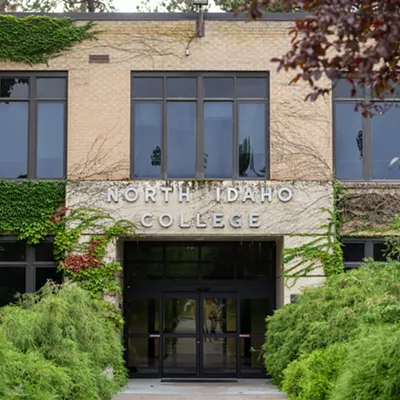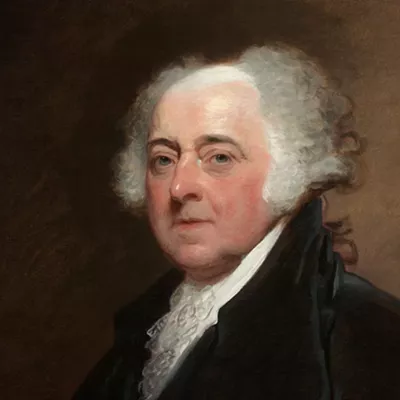
President Joe Biden sounded the alarm as he prepared to leave the White House. Speaking to the American people from the Oval Office, the outgoing president warned the nation that an insidious oligarchy threatens our democracy. Channeling Republican President Dwight Eisenhower's critique of the military-industrial complex from his farewell address of 1961, Biden took aim at a rising "tech-industrial complex" of unelected billionaires, who he claims wield unchecked power over the spread of (mis)information on social media.
Biden's warning is not new. The Founders also grappled with the danger that oligarchy posed to a new republican regime in America. Oligarchy — rule by a small group of people — threatened to undermine the checks and balances built into the new Constitution of 1788.
In Anglo-American 18th century political thought, oligarchy was one of several maladies that could infect the body politic. Before they soured on British rule during the imperial crises of the 1760s and 1770s, the Founders celebrated the genius of the English constitution, which deployed its own system of checks and balances to represent the interests of the Crown, the aristocracy and the common people (democracy). These three elements all posed different threats to liberty. Too much democracy led to anarchy. If the Crown gained too much power, the monarch would become a tyrant. And if the aristocracy became too strong, then oligarchy would threaten liberty.
The Founders were no egalitarians. The conservative John Adams and progressive Thomas Jefferson both agreed that government ought to be the preserve of a "natural aristocracy." Yet, they disagreed about what a natural aristocracy was. Adams believed that certain families, by virtue of their wealth and breeding, would inevitably produce America's leaders. Jefferson, by contrast, argued for a more meritocratic natural aristocracy, defined by individual talent and virtue. He contrasted the natural aristocracy with an "artificial aristocracy," founded on wealth and birth. For Jefferson, the artificial aristocracy was a breeding ground for oligarchy.
The Jeffersonian fear of oligarchy fed partisan divisions among the Founders during the 1790s. Jefferson and his followers were increasingly suspicious of the corrupting influence of money in American politics. And the main target of suspicion was the new treasury secretary, Alexander Hamilton.
Hamilton's humble origins were hardly aristocratic. But Jefferson and the members of his nascent Democratic-Republican Party viewed Hamilton's hold over the financial levers of power with deep suspicion. They feared that the Hamilton sought to emulate the rise to power of Sir Robert Walpole, Britain's first lord of the treasury and first prime minister.
For Jeffersonians, Walpole was the poster child for oligarchy. During the 1720s, Walpole used his power of patronage as finance minister to buy off British members of Parliament. Handing out sinecures, titles and other trinkets, Walpole and his cronies seized control of Parliament for over 20 years. By making himself indispensable to the king through his management of Parliament, Walpole was instrumental in creating the modern concept of a prime minister, which had no constitutional basis in 18th century Britain.
Hamilton, like Walpole, controlled government finances. Hamilton, like Walpole, appeared to be concentrating power in his own hands when he proposed founding the Bank of the United States to service the debts that the states had accrued to foreign creditors during the Revolutionary War. All that money at the heart of government reeked of corruption to Jeffersonians.
But Hamilton was no Walpole. He struck a deal with the Jeffersonians over the assumption of state debts in 1790. In return for urging his supporters in Congress to vote in favor of Hamilton's proposal, Jefferson received assurances that the new U.S. capital city would be built in the South. Jefferson believed that this deal struck a blow against oligarchy by ensuring the separation of the new seat of government from the nation's financial centers of New York City and Philadelphia.
What can we do to guard against oligarchy in 2025? Is it even possible to prevent the super wealthy from buying elections in an era when the U.S. Supreme Court has ruled in favor of unlimited spending by corporations? Jefferson's solution was voting. While voters might sometimes get it wrong, he had faith that "in general they will elect the real good and wise." But we live in an age when voting rights are under attack and social media is fracturing the electorate's sense of a shared reality. Those people who can vote cannot agree on what is good or wise.
Democracy begins at home. The vitality of the republic depends on each of us. No matter the headwinds we may face in 2025, it is our responsibility as citizens to do the hard work of democracy. What does this actually mean? Educate yourselves. Read, watch or listen with measured skepticism without spiraling down conspiratorial rabbit holes. Don't let others create your reality for you. Value your freedom by recognizing that rights come with responsibilities. And if we don't honor our responsibilities to be engaged and informed citizens, then we may soon discover that our rights are beyond recovery. ♦
Lawrence B.A. Hatter is an award-winning author and associate professor of early American history at Washington State University. These views are his own and do not reflect those of WSU.























